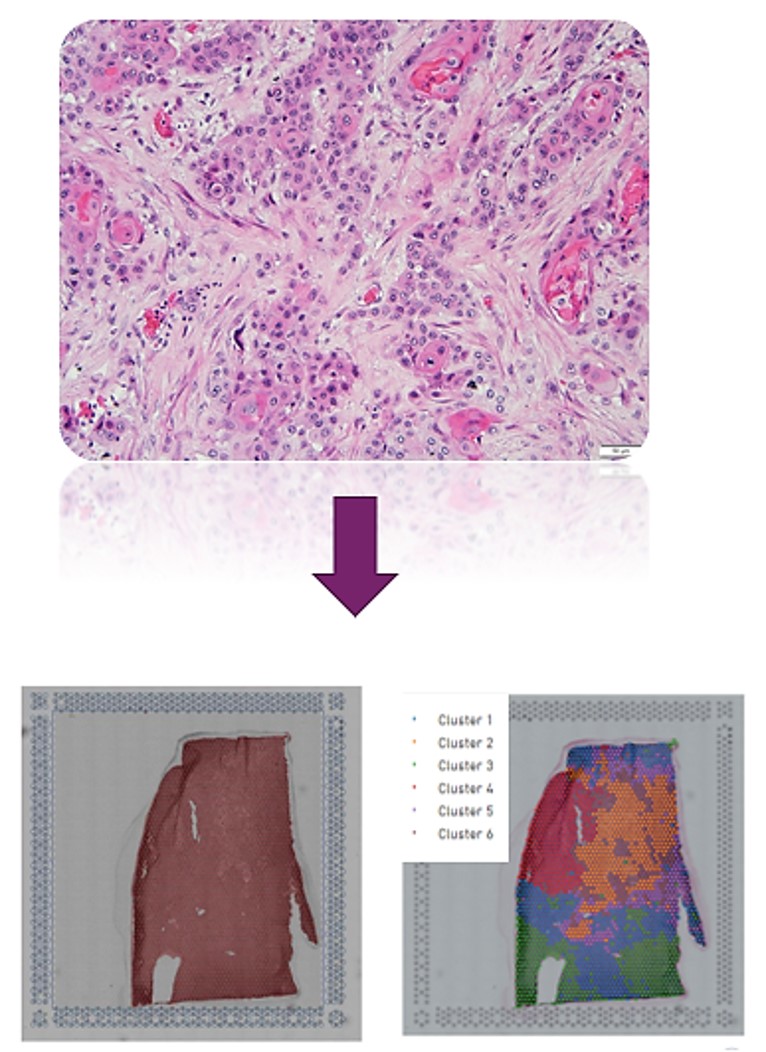Ming
Lam
PhD

South Lake Union
Room N322
Biography
Dr. Lam’s research program is to uncover the biology underlying distant metastases and treatment response, and identify actionable targets for castration-resistant prostate cancer and bladder cancer. The goal is to rationally devise novel therapeutic strategies to improve survivorship of patients affected by cancer. Dr. Lam’s focus areas include:

- Tumor interaction with microenvironment at metastatic sites. We are interested in investigating how microenvironment regulates tumor dormancy and support tumor growth in distant metastases.
- Identification of treatment response and resistance. Treatment response is diverse among patients or even within different metastatic sites of patients, suggesting tumor heterogeneity. We utilize clinical specimens, cell models, and patient-derived xenografts to systematically identify treatment targets, response, and resistance.
- Bladder cancer rapid autopsy program and biorepository. This is a multi-disciplinary effort among urologists, medical oncologists, pathologists, translational scientists, and computational biologists to partner with patients and accrue biospecimens from patients with bladder cancer. This invaluable resource is critical for understanding the disease and for much needed therapeutic discovery.
Memberships
American Association for Cancer Research
American Urological Association
Seattle Tumor Translational Research (STTR)
Fred Hutchinson/University of Washington Cancer Consortium
Society of Chinese Bioscientists in America (SCBA)
Society for Basic Urological Research (SBUR)
Research highlights
- https://ascopubs.org/doi/abs/10.1200/JCO.2018.36.6_suppl.478
- https://www.fredhutch.org/en/news/center-news/2019/06/hsieh-metastatic-bladder-cancer.html
- https://www.pcf.org/bio/hung-ming-lam/
Selected publications
Cancer metastases and preclinical models
- Kim Y.S., Hsieh A.C., Lam H.M. (2022) Bladder cancer patient-derived organoids and avatars for personalized cancer discovery. Eur Urol Focus. S2405-4569(22):166-3. PMID: 35915037
- Cai E., Garcia J., Liu Y., Vakar-Lopez F., Arora S., Nguyen H., Lakely B., Brown L., Wong A., Montgomery B., Lee. J.K., Corey E., Wright J.L., Hsieh A.C., Lam H.M. (2021) A bladder cancer patient-derived xenograft displays aggressive growth dynamics in vivo and in organoid culture. Sci Rep. 11:4609. PMID: 33633154
- Winters B. R., Sarkar N., Arora S., Bolouri H., Vakar-Lopez F., Cheng H. H., Schweizer M., Yu E. Y., Morrissey C., Grivas P., McFerrin L., Montgomery B., Wright J. L.ƚ, Lam H.M.ƚ, Hsieh A. C.ƚ (2019) Genomic distinctions between metastatic lower and upper tract urothelial carcinoma revealed through rapid autopsy. JCI Insight. 5:e128728. PMID: 31145100 ƚ Corresponding author
- Lam H.M., McMullin R., Nguyen H.M., Coleman I., Gormley M., Gulati R., Brown L., Holt S.K., Li W., Ricci D., Verstraeten K., Thomas S., Mostaghel E.A., Nelson P.S., Vessella R.L., Corey E. (2017) Characterization of an abiraterone ultraresponsive phenotype in castration-resistant prostate cancer patient-derived xenografts. Clin Can Res. 23(9):2301-2312. PMID: 27993966
- Lam H.M., Nguyen H.M., Labrecque M., Brown L., Gulati R., Coleman I., Lakely B., Sondheim D., Mostaghel, E.A., Nelson P.S., Corey E., (2020) Durable response of enzalutamide-resistant prostate cancer to supraphysiological testosterone is associated with a multifaceted growth suppression and impaired DNA damage response transcriptomic program in patient-derived xenografts. Eur Urol. 77:144-155. PMID: 31227306
- Lam H.M., Nguyen H.M., Corey E. (2018) Generation of prostate cancer patient-derived xenografts to investigate mechanisms of novel treatments and treatment resistance in prostate cancer. Methods Mol Biol. 1786:1-27. PMID: 29786784
Cancer interaction with microenvironment at metastatic sites
- Lee Y.C., Lam H.M., Rosser C., Theodorescu D. Parks W., Chan K.S. (2022) The Dynamic Roles of the Bladder Tumor Microenvironment. Nature Reviews Urology. 19(9):515-33. PMID: 35764795
- Winters B., Vakar-Lopez F., Brown L., Montgomery B., Seiler R., Black P.C., Boormans J.L., Dall'Era M., Davincioni E., Douglas J., Gibb E.A., van Rhijn B., van der Heijden M.S., Hsieh A., Wright J.L., Lam H.M. (2018) MTOR protein expression in the tumor and associated micro-environment correlates with aggressive pathology at cystectomy. Urol Onc. 36:342.e7-342.e14. PMID: 29657089
- Ruppender N., Larson S., Lakely B., Kollath L., Brown L., Coleman I., Coleman R., Nguyen H.M., Nelson P.S., Corey E., Snyder L.A., Vessella R.L., Morrissey C., Lam H.M. (2015) Cellular adhesion promotes prostate cancer cells escape from dormancy. PLoS One. 10:e0130565. PMID: 26090669
- Morrissey C., Vessella R.L., Lange P.H., Lam H.M. (2016) The Biology and Clinical Implications of Prostate Cancer Dormancy and Metastasis. J Mol Med. 94(3):259-265. PMID: 26489605
- Sosa M.S., Parikh F., Maia A.G., Estrada Y., Bosch A., Bragado P., Ekpin E., George A., Zheng Y., Lam H.M., Morrissey C., Chung C.Y., Farias E., Bernstein E., Aguirre-Ghiso J.A. (2015) NR2F1 controls tumor cell dormancy via SOX9 and RARβ driven quiescence programs. Nature Commun. 6:6170-6184. PMID: 25636082
- Lam H.M., Vessella R.L., Morrissey C. (2014) The role of the microenvironment: Dormant prostate metastatic cancer cells in the bone marrow. Drug Discov Today. 11(5): 41-47.
Estrogen receptor signaling in prostate cancer
-
Lam H.M., Chen J., Medvedovic M., Ho S.M., Tam N.N. (2016) Bisphenol A-specific induction of prostatic hyperplasia and pre-neoplastic lesion accompanied by HNF4α-associated inflammatory response. Endocrinology. 157:207-219. PMID: 26496021
- Lam H.M., Ouyang B., Chen J., Ying J, Wang J., Wu C.L., Jia L., Medvedovic M., Vessella R.L., Ho SM. (2014) Stimulation of GPR30 inhibited growth and induced necrosis in castration-resistant prostate cancer. Endocr Relat Cancer. 21:903-914. PMID: 25287069
- Chan Q.K.Y.*, Lam H.M.*, Ng C.F., Lee A.Y.Y., Chan E.S.Y., Ng H.K., Ho S.M., Lau K.M. (2010) Activation of GPR30 inhibits growth of prostate cancer cells via sustained activation of Erk1/2, upregulation of p21(WAF1/CIP1), and induction of G2 cell-cycle arrest. Cell Death Differ. 17:1511-1523. PMID: 20203690 *Co-first author
- Lam H.M., Suresh Babu C.V., Wang J., Yuen Y., Lam Y.W., Ho S.M., Leung Y.K. (2012) Phosphorylation of human estrogen receptor-beta at serine 105 inhibits breast cancer cell migration and invasion. Mol Cell Endocrinol. 358:27-35. PMID: 22370157



